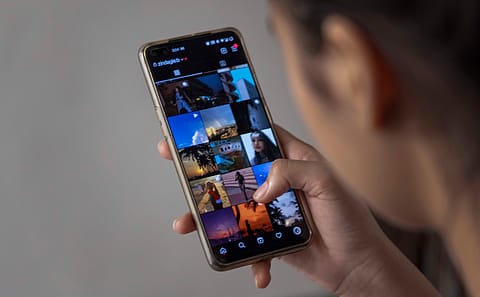Facebook’s dilemma: Instagram’s mental health toll
We should worry as India leads the count for the number of Instagram users globally, most of whom are young adults.

Facebook was in the process of making a version of Instagram ‘for kids’ aged under 13, but Adam Mosseri, head of Instagram announced on September 27 that the company was putting the project on pause to use the time to consult with parents and policymakers.
“We’ve paused work on “Instagram Kids”, but we’ll continue our work to allow parents to oversee their children’s accounts,” a Facebook spokesperson said over e-mail.
This comes soon after internal documents published by The Wall Street Journal revealed the internet company "repeatedly found that its photo-sharing app, Instagram, was harmful to a significant percentage of teenagers in studies conducted by it. With teenage girls being most notably harmed."
But how did Facebook get here?
A matchmaking/rating site Hot or Not, created by two silicon valley based engineers had inspired those who went on to create Facebook. Users submitted photographs of themselves so others could rate their attractiveness. Facebook founder Mark Zuckerberg went one further, placing two photographs next to each other and asking users to choose the "hotter" person on a scale of 1-10 on a site he created called FaceMash.
This perception of likeability was invented in 2000 and tweaked by Zuck in 2003. It is hardly surprising that 21 years later this far from healthy way of looking at oneself and others is at the root of a mental health controversy that surrounds Facebook Inc.
Facebook knew from its research three years ago that 32% of teen girls said that when they felt bad about their bodies, Instagram made them feel worse, CNBC reported. The tech giant also found 14% of boys in the U.S. said Instagram made them feel worse about themselves.
Recommended Stories
Facebook's studies for the past three years scrutinised Instagram’s effects on young users. One report revealed 13% British users and 6% U.S. users said that when they felt suicidal, they knew that Instagram was at its root.
The Facebook spokesperson said, “Keeping young people safe on Instagram is our priority. We have teams set up to explore ways we can support young people. Our research has informed product changes as well as new resources.”
But some such as Kolkata-based therapist, Ahana Ghosh, would disagree, “It's an industrial complex, multiple industries that are all working in tandem with one another to make this happen and everybody is making more and more money. It is happening rampantly and it's taking place in broad daylight.”
According to WSJ, "the features that the social media company identified as the most harmful were part of its key makeup."
(INR CR)
“Also if I say ‘body positivity’ three times in a conversation I would be sure to see ads or sponsored channels that will come on about it, or something about shapewear or something of that sort when I go on Instagram,” adds Ghosh.
“There is this constant surveillance and there is manipulation that comes with that. It is bone chilling to learn the kind of data that is collected and then analysed and how the algorithm runs,” Ghosh adds.
Dr Samir Parikh, a psychiatrist and director of the National Mental Health Programme at Fortis Healthcare tells, “How often do I come across cases of body dysmorphia? The answer is very often. It could be a clinical disorder but may not be. Young people having distress with body image, being under pressure from social media to have likes and shares—these things start playing on their minds. They feel ‘you don't like me because you didn't like my post.’ If you think likeability is about Instagram then you have completely lost the plot.”
We should worry because as of July 2021, according to data from Statistica, India led the world based on Instagram's audience of 180 million users, followed by the United States with 170 million users. Brazil ranked third with 110 million Instagram users, ahead of Indonesia with an audience of 93 million users.
Delhi-based Yash Goyal, 25, was 20 when he had a break up and pictures of happy couples on Instagram threw him emotionally, " On the one hand it made me sad but on the other, I saw the pictures and thought one day I could be as happy as them. But then I realised I couldn't concentrate, I’d wonder why am I drowsy and I started getting therapy after this and a whole new journey of self discovery began."
When you see a stream of men with six packs and perfect bodies, there is a fine line between what is okay and what is toxic for you,” Goyal says.
Facebook said they had introduced new resources to support those struggling with body image issues and a dedicated reporting option for eating disorder-related content.
The Social Dilemma—a recent documentary by Netflix and available on YouTube—is deeply critical of the lack of ethics. It asserts that this capturing of minds is the real money machine where ‘we are the product’ and we are being asked ‘how much of your life can you give to us?'
In a way they have created the perfect business, says Shosanna Zuboff author of The Age of Surveillance Capitalism.
“This is what every business has ever wanted—to have a guarantee that if it places an ad, it will be successful in that business. That there is certainty. To be successful in business you have to have great predictions. There is one imperative—you need to have a lot of data. Many people call this surveillance capitalism.”
This is why internet companies are the richest in the world, she says. “They sell certainty.”
(This article was updated on October 14 to add Facebook Inc's response.)